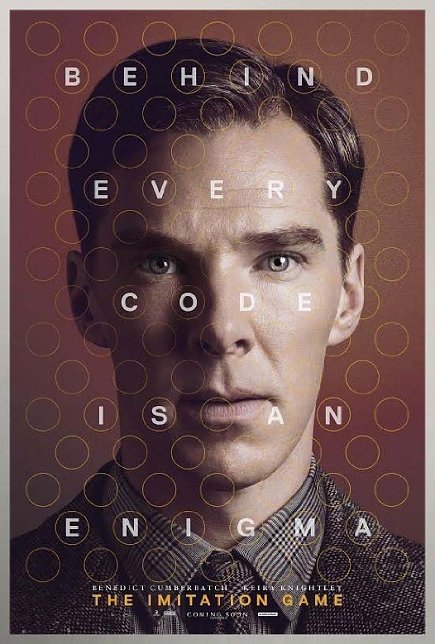 During the Second World War, a group of scientists and cryptographers led by Alan Turing (Benedict Cumberbatch) devised a method of decrypting coded German military messages, effectively shortening the length of the war by two years and saving an estimated fourteen million lives. After breaking the German “Enigma” machine, the group had to remain in total secrecy so as not to alert the Germans, and their immense contribution to the war effort would remain unknown for almost fifty years.
During the Second World War, a group of scientists and cryptographers led by Alan Turing (Benedict Cumberbatch) devised a method of decrypting coded German military messages, effectively shortening the length of the war by two years and saving an estimated fourteen million lives. After breaking the German “Enigma” machine, the group had to remain in total secrecy so as not to alert the Germans, and their immense contribution to the war effort would remain unknown for almost fifty years.
The Imitation Game (2014) tells their story, or more specifically the story of Alan Turing (Benedict Cumberbatch, in arguably his best role to date). Socially awkward (potentially autistic but this is never explored), immensely intelligent, Turing is the prototypical outsider, who unwittingly alienates himself from everyone around him. However, his genius is so great he devises a machine which can discover the settings for a stolen Enigma device which will allow the allies to discover what the Germans are planning.
The main thrust of the narrative consists of your basic war thriller, with a race against time to stop the Germans before they bring down a free Europe and place it under the tyranny of the Third Reich. Although, instead of guns, tanks and daring do, we have theories, mathematics and crossword puzzles. It’s a testament to the writing and acting that although very little of the war is shown (other than the aftermath as the team fails to prevent attacks) there is still a true sense of urgency as Turing’s team race toward a solution.
As this is also a true story based on real events and people, it is important that the audience get a real sense of who Alan Turing was as a person, rather than just showing his deeds. Benedict Cumberbatch is fantastic as the troubled mathematician, at times funny, and also genuinely heartbreaking as Alan’s loneliness and levels of suffering are laid bare. The film also does a good job of portraying the deplorable social situation in Britain at the time as after his efforts in the war Alan is convicted of indecency for being a homosexual and given the “option” of either jail-time or chemical castration, after a year of the latter he committed suicide. It’s commendable that this particular aspect of Alan’s life was given screen-time, as the film could have easily focused only on his work with Enigma, and is a stark reminder that although Britain was fighting Fascism abroad, it was still unjustly persecuting its citizens at home.
The Imitation Game (2014) is a highly enjoyable and slightly unorthodox World War II thriller, with more of a focus on brains than brawn. The lead performance from Benedict Cumberbatch is enthralling as he fully inhabits the role of mathematic genius Alan Turing, giving an emotional and heartbreaking performance of a man who played a major role against worldwide persecution, but couldn’t escape it at home.
★★★★☆
